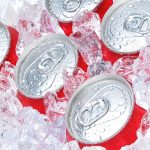
For people with heart disease, new research suggests loneliness, social isolation and living alone can shave years off your life. This trio puts people with established cardiovascular disease at greater risk of premature death, according to the international study. Cardiovascular disease refers to heart disease and stroke. “Social health factors such as loneliness and social isolation have gained a significant amount of attention recently and are really important to think of within the context of cardiovascular health,” said lead author Róisín Long, a clinical psychologist and a doctoral candidate at University of Limerick in Ireland. “What was unclear is to what degree they impact how long people live when they have been diagnosed with cardiovascular disease,” Long said in a university news release. “Our review found that each of these factors are critically important to consider in the treatment of cardiovascular disease, as increased levels of loneliness, social isolation and living alone appears to lead to premature death,” Long added. There are likely several reasons for this, Long added, ranging from support from another person to how an individual biologically responds to stress. For the report, researchers reviewed 35 studies done in Europe, North America and Asia over many decades. The effects of living alone appeared stronger in European countries. This may be a reflection of the large number of people living alone in parts… read on > read on >


















